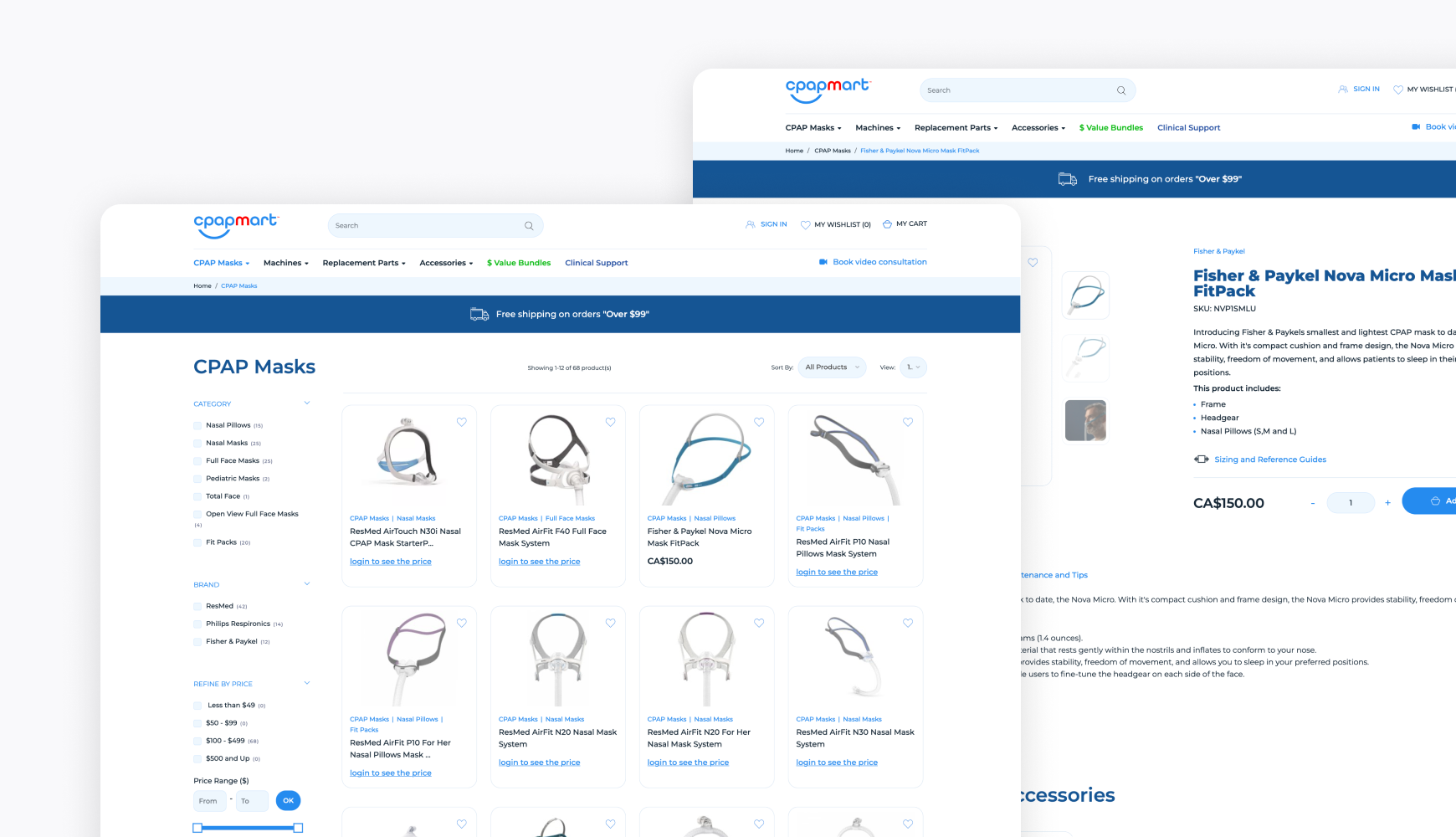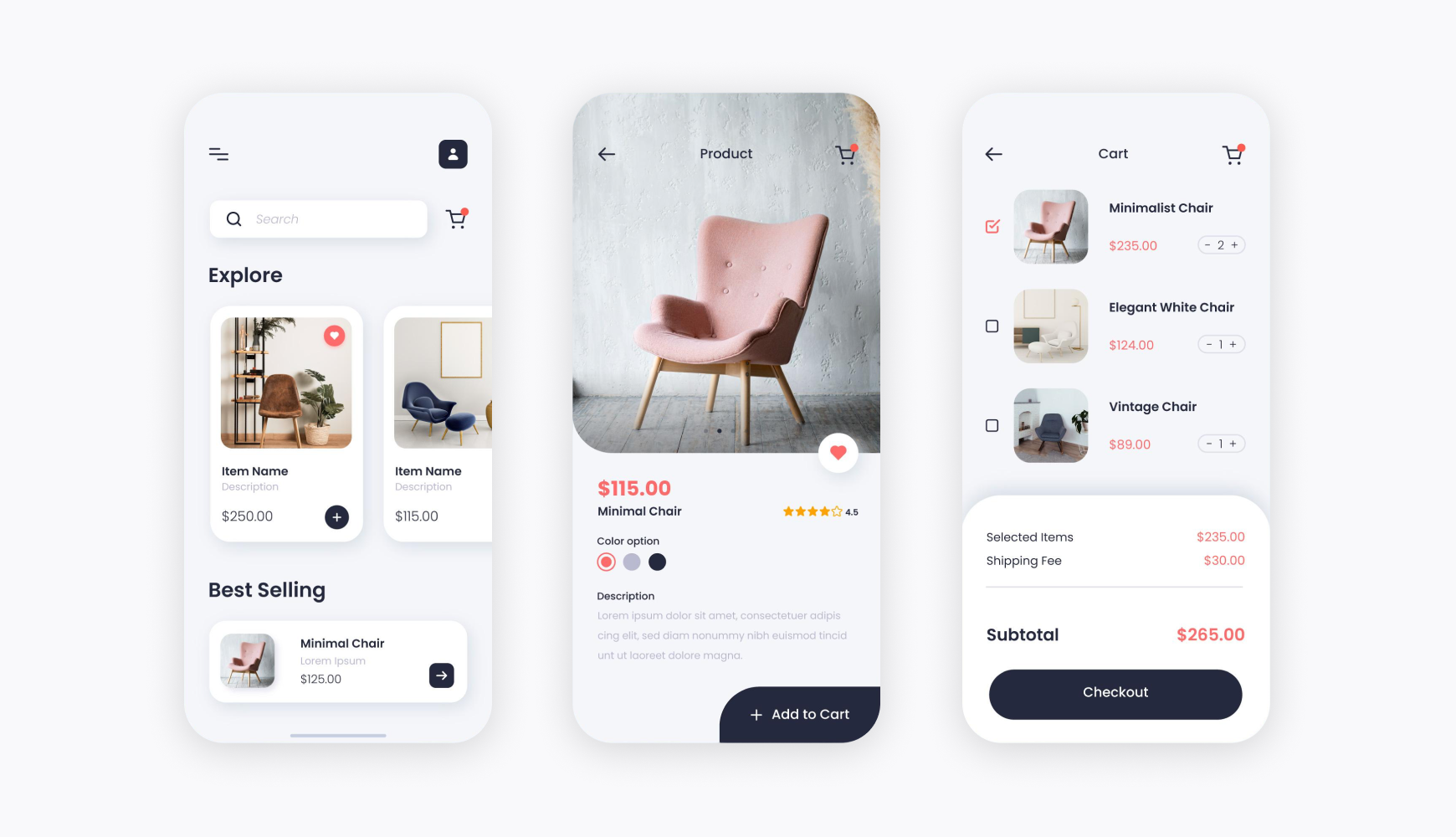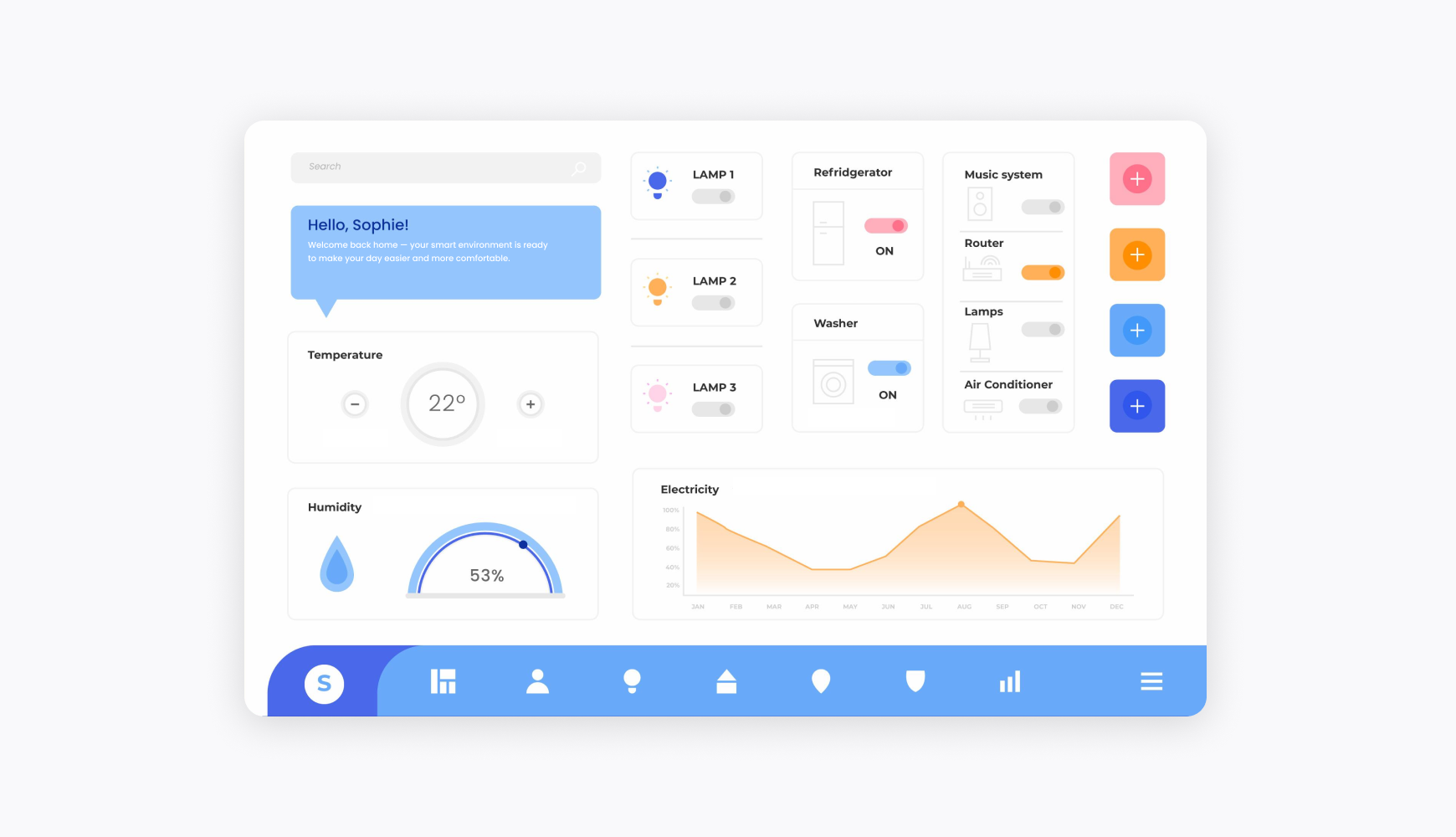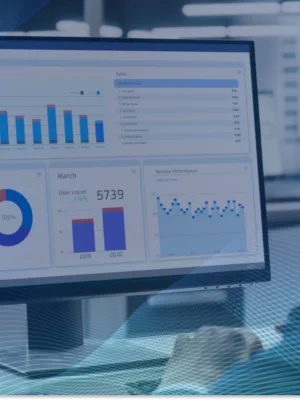
The eight main types of software development are web, mobile app, desktop application, enterprise software, game, API, DevOps/cloud, and embedded systems development. Each type serves different business needs, from customer engagement to operational efficiency.
Every business today relies on software to operate efficiently, serve customers, and stay competitive. Whether you're running a small startup or managing an established company, understanding the different types of software development helps you make informed decisions about your technology investments.
From customer-facing applications to internal business systems, each type of software development serves specific business purposes and offers unique advantages. This guide breaks down the main types of software development in practical terms, helping you identify which solutions align with your business goals and budget.
8 Essential Types of Software Development
1. Web Development

Web development creates websites and web applications that run in internet browsers. For businesses, this means everything from your company website to complex web-based tools that customers and employees use daily.
Modern web development typically involves two main components: front-end development (what users see and interact with) and back-end development (the server logic that powers functionality). Web applications can handle everything from simple contact forms to sophisticated e-commerce platforms, customer portals, and business management systems.
Key business benefits include:
- Accessible from any device with internet connection
- No software installation required for users
- Easier to update and maintain than traditional software
- Cost-effective way to reach customers globally
Companies use web development for online stores, booking systems, customer relationship management tools, and internal business applications. The flexibility and accessibility make web development often the most practical starting point for businesses entering the digital space.
Now that we've covered how web development serves as your business's digital foundation, let's explore how types of software development extend to mobile platforms where your customers spend increasing amounts of time.
2. Mobile App Development

Mobile app development creates applications specifically designed for smartphones and tablets. With mobile devices accounting for over half of all internet traffic, mobile apps represent a direct channel to your customers' daily routines.
Businesses can choose between native development (separate apps for iOS and Android) or cross-platform development (one app that works on multiple operating systems). Native apps typically offer better performance and user experience, while cross-platform solutions reduce development costs and time to market.
Strategic advantages for businesses:
- Direct marketing channel through push notifications
- Enhanced customer engagement and loyalty
- Ability to leverage device features like GPS, camera, and contacts
- Offline functionality for users without internet connection
Companies across industries use mobile apps for customer service, sales, internal communications, and field operations. Retail businesses see significant revenue increases from mobile apps, while service companies use them to streamline appointment booking and customer communication.
While mobile apps connect you directly with individual customers, the next type of software development we'll examine focuses on creating powerful tools for teams and organizations.
3. Desktop Application Development

Desktop application development creates software that runs directly on computers and laptops. These applications typically offer more processing power and advanced features than web or mobile alternatives, making them ideal for complex business operations.
Desktop applications excel in scenarios requiring intensive data processing, advanced graphics, or specialized hardware integration. Many professional industries rely on desktop software for tasks that demand precision, speed, and sophisticated functionality.
Business applications include:
- Accounting and financial management software
- Design and engineering tools
- Data analysis and reporting systems
- Specialized industry software for healthcare, legal, or manufacturing
Desktop applications often integrate with existing business systems and can work offline, ensuring productivity regardless of internet connectivity. They're particularly valuable for businesses that handle sensitive data or require specialized functionality not available through web-based solutions.
Moving from individual productivity tools, let's examine how types of software development scale up to serve entire organizations through enterprise solutions.
4. Enterprise Software Development
Enterprise software development creates large-scale applications designed to meet the complex needs of entire organizations. These systems typically integrate multiple business functions, handle large volumes of data, and support hundreds or thousands of users simultaneously.
Enterprise solutions focus on automating business processes, improving efficiency, and providing comprehensive reporting and analytics. They often replace multiple smaller systems with unified platforms that give management better visibility into operations.
Common enterprise software types:
- Customer Relationship Management (CRM) systems
- Enterprise Resource Planning (ERP) platforms
- Human Resources Management Systems (HRMS)
- Supply chain and inventory management tools
These systems require significant investment but deliver substantial returns through improved efficiency, better decision-making capabilities, and streamlined operations. Enterprise software typically offers extensive customization options to match specific business processes and requirements.
From managing business operations, our exploration of types of software development now turns to an industry that combines creativity with technology to create engaging experiences.
5. Game Development

Game development creates interactive digital experiences, and while entertainment remains the primary market, businesses increasingly use gaming principles for training, marketing, and customer engagement.
Serious games and gamification help companies train employees, educate customers, and create memorable brand experiences. Virtual reality and augmented reality games offer immersive training environments that reduce costs and improve learning outcomes.
Business applications for game development:
- Employee training simulations
- Marketing campaigns and brand experiences
- Customer education and onboarding
- Team building and company culture initiatives
Companies in healthcare, education, retail, and manufacturing use game-based solutions to solve real business challenges. The interactive nature of games increases engagement rates significantly compared to traditional training or marketing materials.
While games create engaging experiences, the next type of software development we'll discuss focuses on connecting different business systems and applications.
6. API Development
API (Application Programming Interface) development creates the connections that allow different software systems to communicate and share data. APIs act as bridges between applications, enabling businesses to integrate various tools and create seamless workflows.
Modern businesses use dozens of different software applications, from accounting systems to marketing tools to customer service platforms. APIs ensure these systems work together efficiently, eliminating manual data entry and reducing errors.
Key business benefits:
- Automated data synchronization between systems
- Streamlined workflows and reduced manual tasks
- Ability to integrate best-of-breed solutions
- Scalable architecture that grows with your business
E-commerce businesses use APIs to connect inventory management with online stores, while service companies integrate scheduling systems with billing platforms. APIs enable businesses to choose the best individual tools while maintaining unified operations.
As businesses increasingly rely on connected systems, the next type of software development focuses on managing and optimizing these complex technological environments.
7. DevOps and Cloud Development
DevOps and cloud development focuses on building, deploying, and managing software applications in cloud environments. This approach emphasizes automation, scalability, and reliability to ensure business applications perform consistently under varying loads.
Cloud development allows businesses to access enterprise-level infrastructure without significant upfront investment. Applications can scale automatically based on demand, ensuring consistent performance during peak periods while controlling costs during slower times.
Strategic advantages include:
- Reduced infrastructure costs and maintenance
- Automatic scaling based on business needs
- Enhanced security and disaster recovery capabilities
- Global accessibility for remote teams and customers
Companies use cloud development for everything from simple websites to complex data processing systems. The flexibility and cost-effectiveness make cloud solutions particularly attractive for growing businesses that need to scale quickly.
Our final examination of types of software development looks at specialized applications that power the devices and systems we interact with daily.
8. Embedded Systems Development
Embedded systems development creates software that runs on specialized hardware devices. While less visible than other types of software development, embedded systems power everything from smart thermostats to manufacturing equipment to medical devices.
For businesses, embedded systems offer opportunities to create smart products, improve operational efficiency, and gather valuable data about usage patterns and performance.
Business opportunities include:
- Smart office systems for energy management
- Industrial automation and monitoring
- Connected products that provide customer insights
- Quality control and predictive maintenance systems
Manufacturing companies use embedded systems to monitor equipment performance and prevent breakdowns. Retail businesses implement smart inventory systems that automatically track stock levels and reorder products.
Choosing the Right Types of Software Development for Your Business
Understanding these eight types of software development helps you make strategic technology decisions that align with your business goals. The key is matching your immediate needs and budget to the most appropriate development approach.
Start by identifying your biggest challenges: customer engagement, operational efficiency, or market reach. Many successful businesses combine multiple types of software development to create comprehensive solutions, starting with one priority area and expanding their technology ecosystem over time.
Working with experienced development partners ensures you choose the right approach and avoid costly mistakes. The investment in proper planning typically pays for itself through improved operations and better customer experiences.
Ready to Transform Your Business with the Right Software Solution?

At Convergine, we help business owners navigate these technology decisions with confidence. Our team has delivered successful projects across different industries, and we're here to guide you toward the solution that best fits your business goals and budget. Let's discuss your specific needs and create a technology roadmap that drives real results for your business.










